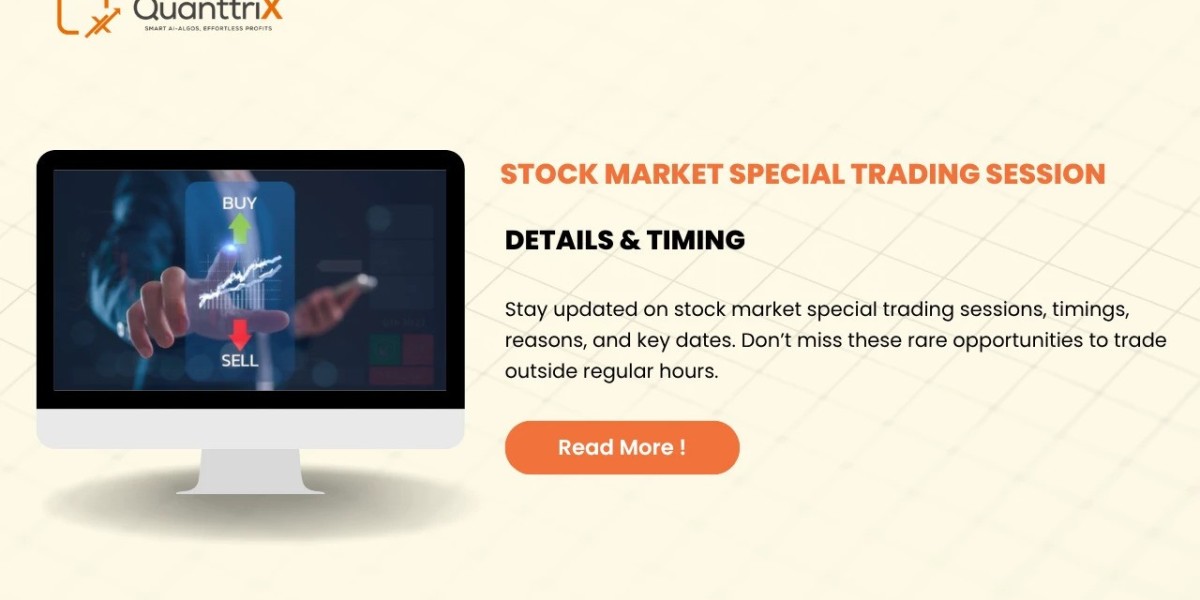Stock Market Special Trading Session: Everything You Need to Know
Introduction to Stock Market Special Trading Session
Have you ever wondered why sometimes the stock market opens or closes at odd hours, or why there’s a sudden flurry of activity when everyone thought trading was done for the day? Imagine the stock market as a bustling city that occasionally hosts a celebration or emergency drill—these are the special trading sessions. In this guide, we’ll make sense of what makes these sessions “special,” when they happen, why they matter, and how modern tools like algorithmic trading software come into play.
Discover the ins and outs of stock market special trading sessions, special trading session essentials, and algorithmic trading software in our easy-to-read, SEO-optimized guide.
What Is a Special Trading Session?
Think of a special trading session like an extra inning in a baseball game or an early opening at your favorite store. The usual rules apply, but the timing is out of the ordinary. In essence, a special trading session is any trading period outside the regular hours announced by stock exchanges, typically called to accommodate unique events, market holidays, or major economic developments.
When and Why Are Special Trading Sessions Held?
Special trading sessions can pop up for a variety of reasons. Sometimes, they’re planned—such as to compensate for a market holiday—while at other times, they’re triggered by economic or political events. Imagine a store staying open late for a big sale. Similarly, markets stay open or open early for these key reasons:
Public holidays: Compensatory sessions when a market has been shut.
Budget announcements: Allows traders to react to important economic news.
Global events: If international events impact domestic markets.
Year-end adjustments: For portfolio balancing and settlement purposes.
Types of Special Trading Sessions
Just as there are different kinds of celebrations—birthdays, anniversaries, festivals—there are various types of special trading sessions:
Pre-open sessions: Before regular market hours, often for price discovery.
Post-market sessions: After usual closing, giving a chance to settle trades.
Block deal windows: Special slots for large traders to buy/sell significant chunks without impacting the market price drastically.
Trial runs or mock sessions: To test new systems and software.
Algorithmic Trading Software in Special Sessions
Ever seen a chef use a food processor to slice veggies at lightning speed? Algorithmic trading software is much like that kitchen gadget but for trading—automating strategies, analyzing market sentiment, and executing trades with precision and speed.
Role of Algorithmic Trading Software:
Efficiency—Executes trades faster than any human.
Complex strategies—Implements rules for buying and selling during fleeting opportunities in special sessions.
Reduced emotion—Sticks to logic, even when humans get nervous.
Adaptability—Responds quickly to volatile conditions often present in special sessions.
How Traders Prepare for Special Sessions
Much like how athletes warm up before a big race, traders gear up for special sessions:
Research market triggers for the session.
Update algorithmic trading software configurations.
Set appropriate risk limits given the higher volatility.
Look for liquidity patterns that differ from regular sessions.
Keep an eye on global cues impacting domestic trading.
Key Advantages of Special Trading Sessions
Why do markets bother with special sessions? Here’s what makes them valuable:
Flexibility—Markets can react to new information or events quickly.
Liquidity—Extra hours can help traders enter or exit positions.
Coverage—Ensures that local holidays or unusual events don’t leave traders stranded.
Price discovery—More continuous trading often leads to fairer prices.
Risks and Challenges
Nothing is ever perfect. Special trading sessions can bring:
Higher volatility—Sudden price swings can catch traders off guard.
Lower liquidity at times, making it tricky to enter or exit trades at the desired prices.
System overload—Intense activity may strain algorithms or systems, especially if not properly tested.
Emotional pitfalls—Unusual timing may result in hasty, uninformed decisions.
How to Participate as an Individual Investor
If you’re keen on joining a special trading session, here’s how you can start:
Check announcements from your stock exchange for timing and procedures.
Ensure your broker allows access during special sessions.
Familiarize yourself with your trading platform’s features, particularly if using algorithmic trading software.
Start small—test the waters to understand the different market pulse.
Case Studies: Real Examples
Case 1:
On budget presentation day, the Indian stock exchange often conducts a special trading session so investors can respond in real time to economic policies. This ensures nobody misses out on key opportunities or risks.
Case 2:
During technical upgrades, exchanges may hold trial runs to let algorithmic trading software and traders adapt—a bit like a fire drill to prevent future mishaps.
Frequently Used Strategies
Some traders treat special sessions as “bonus rounds.” Here’s how they strategize:
Gap trading: Seizing on big price differences caused by overnight news.
Scalping: Making quick, small profits from minute price movements.
Statistical arbitrage: Using algorithms to find and exploit price anomalies.
Hedging: Protecting existing investments from unexpected moves during special sessions.
Special Trading Session vs. Regular Trading
Factor | Special Trading Session | Regular Trading |
Timing | Unusual, outside routine | Fixed, announced in advance |
Liquidity | May be lower or higher | Generally stable |
Volatility | Usually higher | Moderate |
Participation | Sometimes limited | Open to all |
Regulatory Framework and Oversight
Just as traffic police oversee a parade, market regulators keep a watchful eye on special trading sessions:
Exchanges must announce sessions in advance.
Strict protocols for algorithmic trading software to prevent market manipulation.
Surveillance to catch suspicious trading patterns or technical glitches.
Future Trends in Special Sessions & Algo Trading
Looking ahead, special trading sessions and algorithmic trading software are set to become even more intertwined. Trends include:
AI-powered trading tools creating more dynamic, responsive algorithms.
Greater retail participation as technology barriers fall.
Global coordination during major international events.
Enhanced risk management features in trading software.
Conclusion & Key Takeaways
Stock market special trading sessions are like extra innings in the game of finance—unexpected but often essential. They help markets stay flexible, responsive, and fair in times of change. Whether you’re a seasoned trader armed with the latest algorithmic trading software or a curious newcomer, understanding these sessions can open doors to new opportunities. Just remember: preparation, caution, and the right tools are key.
Frequently Asked Questions (FAQs)
1. What is a stock market special trading session?
A special trading session is a period outside normal market hours that lets traders respond to unique events, like holidays or major economic developments.
2. How does algorithmic trading software impact special trading sessions?
Algorithmic trading software automates strategies, handles volatility, and helps traders capitalize on fleeting market opportunities during these sessions.
3. Can individual investors participate in special trading sessions?
Yes, provided their broker supports it. It’s best to stay informed and start with small trades to get comfortable.
4. Are special trading sessions riskier than regular sessions?
They can be, due to higher volatility and unusual market conditions. Preparation and smart use of technology are essential.
5. Why do stock exchanges conduct special trading sessions?
To help markets function smoothly despite holidays, economic events, or technical needs—ensuring trading opportunities and fair price discovery.








